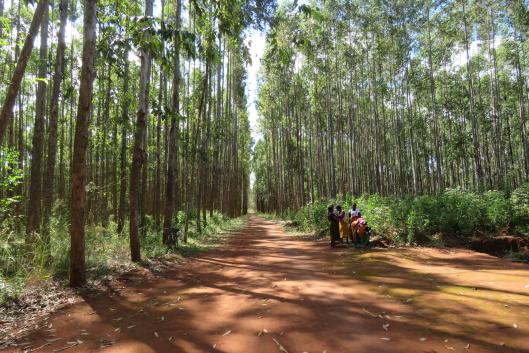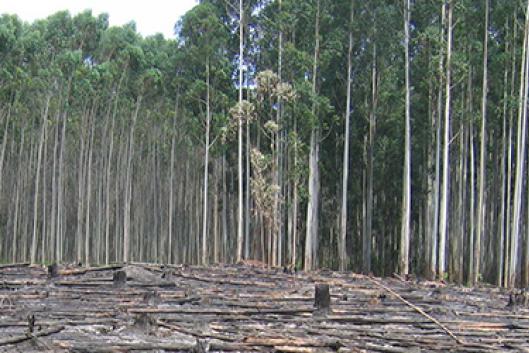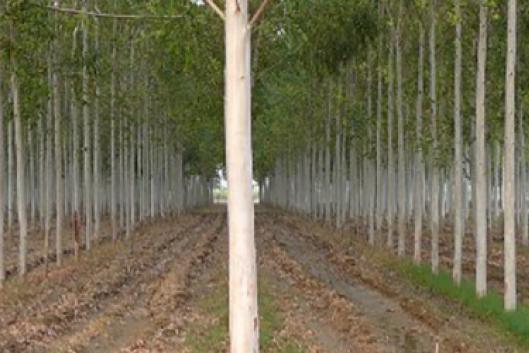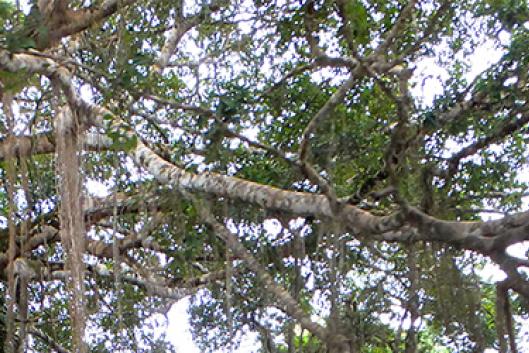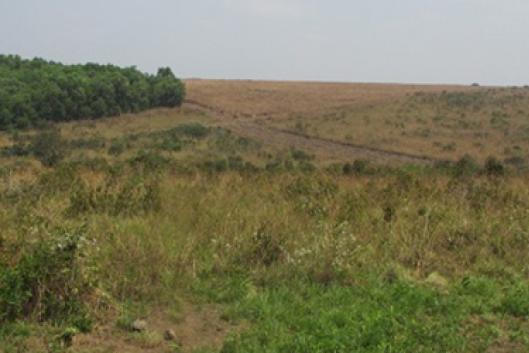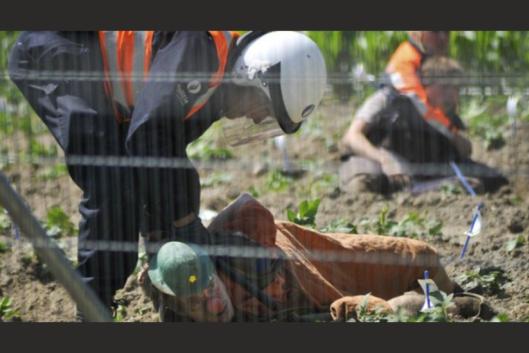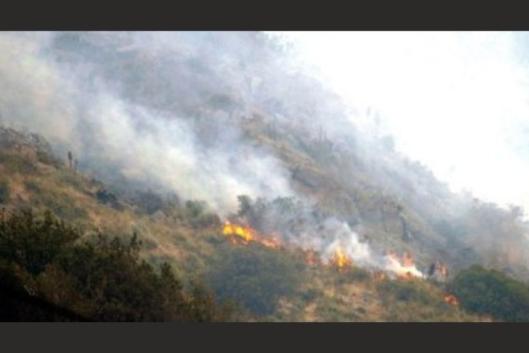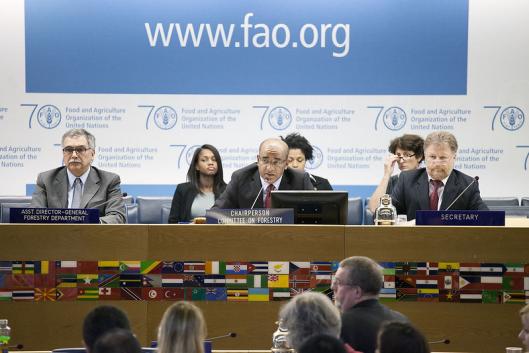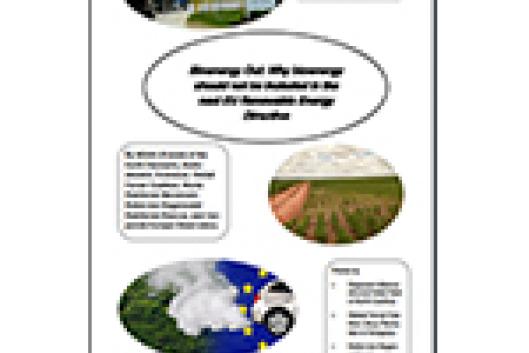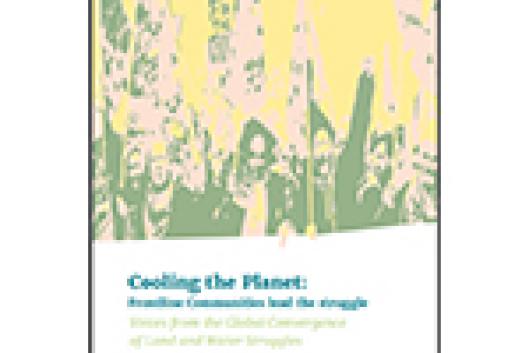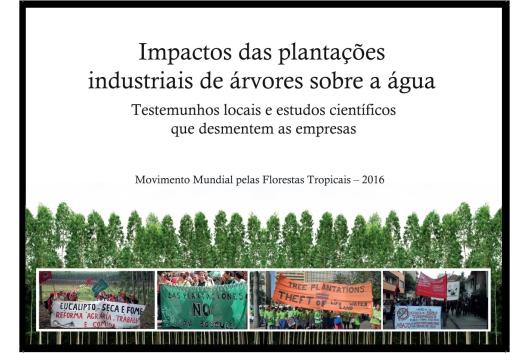Bulletin Issue 228 – January 2017
UN Paris Agreement on Climate Change: Promoting tree plantations and opening UN carbon market to REDD+
WRM Bulletin
228
January 2017
OUR VIEWPOINT
UN PARIS AGREEMENT ON CLIMATE CHANGE: PROMOTING TREE PLANTATIONS AND OPENING UN CARBON MARKET TO REDD+
-
8 February 2017Almost 20 years ago, in the Japanese city of Kyoto, the Oilwatch network along with over 200 other organizations launched the pioneering proposal of the oil moratorium, in order to put an end to the problems that occur where fossil fuels are extracted, and also as the most effective way to combat climate change. Since then the campaign to leave hydrocarbons underground has spread all over the world. Oilwatch's arguments have finally been heard and embraced by many people.
-
7 February 2017Years before governments adopted the Paris Agreement, international initiatives promising millions of hectares of reforestation and forest restoration were launched, supposedly to benefit the environment and local communities. Yet, not one example of reforestation at scale exists that has achieved the promised benefits for communities and the environment.
-
7 February 2017The "conservation industry" – groups such as The Nature Conservancy, WWF, Conservation International, consultants and auditors of REDD+ projects – and funders like the World Bank celebrated the formal recognition of REDD+ in the Paris Agreement on Climate Change in December 2015. They have been lobbying for an inclusion of REDD+ into global carbon markets established by the UN's Kyoto Protocol for nearly a decade. For communities affected by REDD+ projects and programmes, however, the news will have been no reason to celebrate.
-
7 February 2017In December 2015, the Paris Agreement was celebrated with great fanfare. This agreement, part of the United Nations Framework Convention on Climate Change (UNFCCC), establishes new measures to reduce Greenhouse Gas Emissions, which are responsible for global warming. Almost a year after celebrating it, the Agreement came into force on November 4, 2016. A few days later, the 22nd UNFCC Conference of the Parties commenced in Marrakech, Morocco, supposedly to move forward with the details of implementing the Paris Agreement. (1)
PEOPLES IN ACTION
-
8 February 2017At the end of the climate summit in Marrakesh in December 2016, 20 activists from the Field Liberation Movement in Belgium planted a “permit to cut” in a field of GMO poplar trees belonging to the Flemish Institute of Biotechnology. The permit was given symbolically to the Flemish Minister responsible for climate policy. The Minister became infamous for her statement regarding forest management that “Trees have always had the function to be cut.” With this in mind, activists encouraged her to cut the field of GMO trees. See https://stopgetrees.org/field-liberation-movement-takes-action-ge-trees-belgium/ (available in English only)
-
8 February 2017In the Brazilian state of Espirito Santo, the Landless Peasant Movement MST is occupying some 400 hectares of land appropriated by pulp and paper company Fibria (formerly Aracruz Celulose). 190 families have already established a camp and are preparing the land for the cultivation of food free of pesticides. For more information, see http://www.mst.org.br/2017/01/13/mst-ocupa-area- apropriada-indevidamente-pela-fibria-em-aracruz-es.html (available in Portuguese only)
-
8 February 2017Organizations in Chile demand an end to the national policy and instruments that have been created to favor the development of tree plantations. The large-scale pine and eucalyptus monoculture forestry model has caused, in addition to other impacts, the fire crisis that is being experienced in the south-central area of the country. For more information see: http://olca.cl/articulo/nota.php?id=106668
-
7 February 2017The UN has declared the 21st of March 'International Day of Forests'. We will use the occasion to remind the FAO that it must urgently change its forest definition so the plantations industry can no longer use the definition to mislabel monoculture tree plantations as forests. We are hopeful that one day even the FAO will accept that plantations are not forests and change its misleading forest definition! Please sign on if you have not done so yet and circulate the links to the sign-on letter!
RECOMMENDED
-
8 February 2017The Paris Agreement enshrined the principle of compensation in dealing with the climate crisis. This means that emissions actually do not have to decrease but that emissions and absorption of carbon in vegetation and soil can cancel each other out. This approach has already begun with forests through the highly controversial REDD+ mechanism and, to an increasing degree, is now targeting farming land. Because the Paris Agreement focuses on compensation, not reduction, agriculture is becoming a unit of accounting permitting fossil carbon emissions to continue or even increase.
-
8 February 2017Marrakech declaration against the summit of false solutions and for a fair and sustainable future for all peoples. For real alternatives to preserve environmental balances and recognise climate justice, For a fair and sustainable future for all peoples.
-
-
8 February 2017What is driving the expansion of industrial tree plantations in 11 eastern and southern African countries, Malawi, Mozambique, Zambia and Zimbabwe; Kenya, Tanzania and Uganda; South Africa, Swaziland and Lesotho; and Madagascar. The publication identifies probable drivers and discusses the consequences for local communities confronted by tree plantation companies in search of fertile land to establish their tree plantations. The report also gives examples of communities that have already experienced the invasion of their lands and lives by industrial tree plantations.
-
8 February 2017When communities denounce the water shortages they experience as a result of tree monocultures, the empirical evidence they present is often discredited and ridiculed in public by proponents of monoculture tree plantations who claim that there is no scientific evidence to back up the communities' demands. The Briefing combines empirical evidence based on community experience with evidence derived from Western science that reinforces what communities already know and have long been saying about the impacts large-scale monoculture tree plantations have on water resources. Available in Spanish
